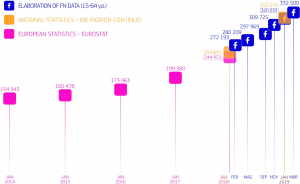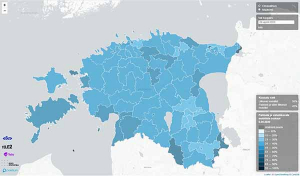
Statistics Netherlands’ experiments with neighbourhood maps based on big data
Summary
Statistics Netherlands (CBS) is increasingly producing statistics based on big data sources, such as vast amounts of accumulated census data. In this project the team developed an interactive map, displaying detailed information on municipalities and neighbourhoods, including information about the migration background of residents. The privacy of residents is not compromised at any point of the visualization, as the dots representing the population are placed at random around a neighbourhood, and areas with lower population density than 1,000 per square meter do not include any dots to prevent other forms of identification.
Results
This map has numerous uses for policymakers, residents and migrants in the Netherlands, as it provides insights for urban planning, housing and migrant diaspora networks. The colour of the dots represents the residents’ backgrounds: Pink dots indicate residents with a native Dutch background, while green and blue dots are for people with a western and non-western migration background. In addition to this feature, this visualization method can also represent other data sets, such as for distribution of dwellings, businesses, households or even farms and animals. Overall, the innovative project of illustrating background information of neighbourhoods in interactive maps provides for useful insights, accessible to very a broad audience. It can be replicated to other nation-states as well, and may appear particularly relevant to urban planning professionals, working in regions of high in- and outflows of migration.
(Picture: © Ten-X, Auction.com)


